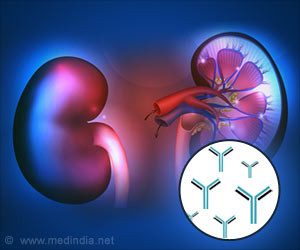Scientists have proposed precision medicine treatment options to personalize treatment for patients with Autosomal Dominant Polycystic Kidney Disease (ADPKD).
Highlights:
- Scientists at McMaster University, Canada and University of Chicago have proposed precision medicine treatment options for Autosomal Dominant Polycystic Kidney Disease (ADPKD)
- ADPKD is characterized by degenerative decline of kidney function and can ultimately lead to end-stage renal disease
- Precision medicine tailors the treatment according to each patient’s genetic makeup, biomarkers, stage of the disease, prognosis and overall health condition.
What is Autosomal Dominant Polycystic Kidney Disease (ADPKD)?
Autosomal Dominant Polycystic Kidney Disease (ADPKD) is a genetically inherited kidney disorder causing fluid-filled cysts in the kidneys. This leads to enlargement of kidneys and ultimately causes end-stage renal disease. Globally, ADPKD is the fourth largest cause of kidney failure and most people diagnosed with ADPKD will develop kidney failure by the age of 50. Children affected by ADPKD are born with the condition but it is not noticeable until the cysts develop in the kidneys. Symptoms can begin in childhood, youth or in adults between the ages 30-50. Symptoms include:- abdominal pain
- blood in the urine
- urinary tract infections
- high blood pressure
ADPKD is caused by a genetic mutation which disrupts the normal development of kidney cells. There are two faulty genes causing ADPKD:
- PKD1 which is responsible for around 90% of all cases
- PKD2 which is responsible for around 10% of all cases
Currently, there is no cure for ADPKD. The symptoms such as high blood pressure, urinary tract infections are usually treated with medications. Surgical interventions may be used to remove large cysts. Dialysis and kidney transplants are the only options for patients with end-stage renal failure.
New Precision Medicine Treatment Options for ADPKD
In this review, the researchers discussed approaches for the management of ADPKD patients which have advanced due to technologies like genotyping, precision imaging, biomarker profiling and emerging therapeutics. The researchers discussed pharmacological and non-pharmacological interventions for treatment of complications like hypertension and proteinuria which are key factors in accelerating end-stage renal disease. The researchers also focused on latest strategies to slow down cyst growth in such patients. The researchers propose that the phenotypes of ADPKD patients vary with a number of epigenetic factors like environmental exposure, age of diagnosis, number of co-morbidities, prognosis and response to certain types of treatment. While patients may share similar genotypes, their body types may be amenable or not amenable to certain types of therapeutics. In this case, it is best to use precision medicine to work out personalized treatment plans for each individual.The researchers discussed the need for prophylactic therapeutics for those patients who are asymptomatic. These treatments slow down cyst growth and delay the onset of end-stage renal disease. Hypertension and proteinuria also have a major role in end-stage renal disease. These two symptoms must not be ignored and treatment must be personalized and based on genotyping and other biomarkers. Treating these two symptoms can relatively slow down the progress of ADPKD.
Finally, the researchers also discussed recommendations for managing other renal complications like cyst infections and inflammation, hematuria, nephrolithiasis and chronic pain associated with ADPKD. With precision medicine options and personalized treatment plans on the horizon, patients should respond better with improved outcomes and positive quality of life.
References:
- Lanktree, Matthew B., and Arlene B. Chapman. "New treatment paradigms for ADPKD: moving towards precision medicine." Nature reviews. Nephrology (2017). Accessed on 21st October 2017 from
- What is ADPKD? - (https://pkdcu re.org/what-is-pkd/adpkd/)
- What is precision medicine? - (https://ghr.nlm.nih.gov/primer/precisionmedicine/definition)
Source-Medindia














